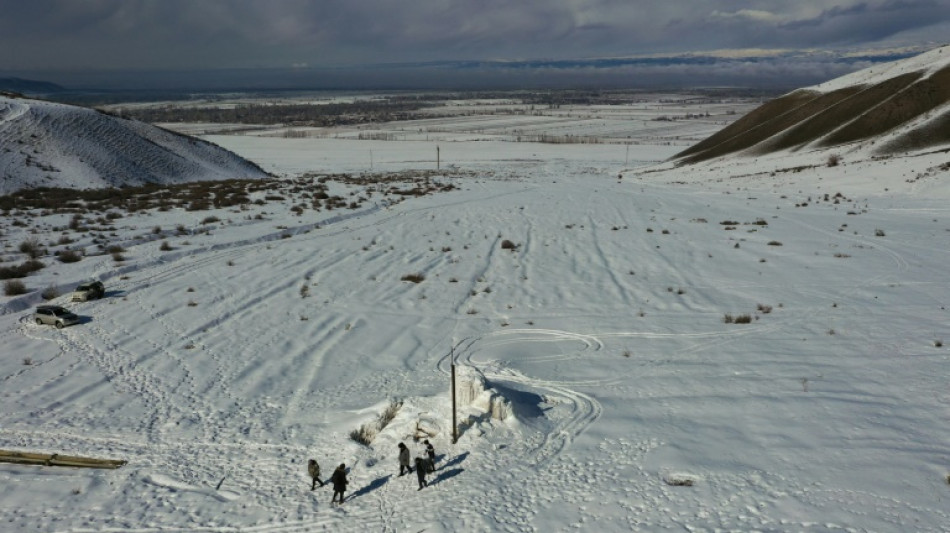
-
 Trump refuses to apologize for racist clip of Obamas as monkeys
Trump refuses to apologize for racist clip of Obamas as monkeys
-
Takaichi talks tough on immigration on eve of vote

-
 England's Salt passed fit for T20 World Cup opener
England's Salt passed fit for T20 World Cup opener
-
Spain, Portugal brace for fresh storm after flood deaths

-
 Pakistan bowl out Netherlands for 147 in T20 World Cup opener
Pakistan bowl out Netherlands for 147 in T20 World Cup opener
-
Pushed to margins, women vanish from Bangladesh's political arena

-
 Crypto firm accidentally sends $40 bn in bitcoin to users
Crypto firm accidentally sends $40 bn in bitcoin to users
-
Pistons end Knicks' NBA winning streak, Celtics edge Heat

-
 Funerals for victims of suicide blast at Islamabad mosque that killed at least 31
Funerals for victims of suicide blast at Islamabad mosque that killed at least 31
-
A tale of two villages: Cambodians lament Thailand's border gains

-
 Police identify suspect in disappearance of Australian boy
Police identify suspect in disappearance of Australian boy
-
Cuba adopts urgent measures to address energy crisis: minister

-
 Not-so-American football: the Super Bowl's overseas stars
Not-so-American football: the Super Bowl's overseas stars
-
Trump says US talks with Iran 'very good,' more negotiations expected

-
 Trump administration re-approves twice-banned pesticide
Trump administration re-approves twice-banned pesticide
-
Hisatsune leads Matsuyama at Phoenix Open as Scheffler makes cut

-
 Beyond the QBs: 5 Super Bowl players to watch
Beyond the QBs: 5 Super Bowl players to watch
-
Grass v artificial turf: Super Bowl players speak out

-
 Police warn Sydney protesters ahead of Israeli president's visit
Police warn Sydney protesters ahead of Israeli president's visit
-
Bolivia wants closer US ties, without alienating China: minister

-
 Ex-MLB outfielder Puig guilty in federal sports betting case
Ex-MLB outfielder Puig guilty in federal sports betting case
-
Milan-Cortina Winter Olympics open with dazzling ceremony

-
 China overturns death sentence for Canadian in drug case
China overturns death sentence for Canadian in drug case
-
Trump reinstates commercial fishing in protected Atlantic waters

-
 Man Utd can't rush manager choice: Carrick
Man Utd can't rush manager choice: Carrick
-
Leeds boost survival bid with win over relegation rivals Forest

-
 Stars, Clydesdales and an AI beef jostle for Super Bowl ad glory
Stars, Clydesdales and an AI beef jostle for Super Bowl ad glory
-
Dow surges above 50,000 for first time as US stocks regain mojo

-
 Freeski star Gu says injuries hit confidence as she targets Olympic treble
Freeski star Gu says injuries hit confidence as she targets Olympic treble
-
UK police search properties in Mandelson probe

-
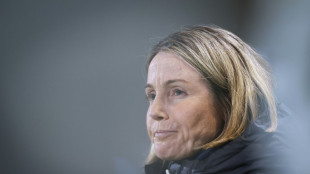 Bompastor extends contract as Chelsea Women's boss despite slump
Bompastor extends contract as Chelsea Women's boss despite slump
-
Milan-Cortina Winter Olympics open with glittering ceremony
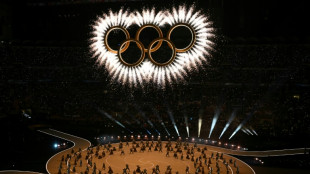
-
 A French yoga teacher's 'hell' in a Venezuelan jail
A French yoga teacher's 'hell' in a Venezuelan jail
-
England's Underhill taking nothing for granted against Wales

-
 Fans cheer for absent Ronaldo as Saudi row deepens
Fans cheer for absent Ronaldo as Saudi row deepens
-
Violence-ridden Haiti in limbo as transitional council wraps up
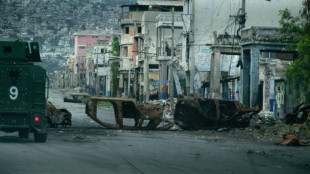
-
 Hundreds protest in Milan ahead of Winter Olympics
Hundreds protest in Milan ahead of Winter Olympics
-
Suspect in murder of Colombian footballer Escobar killed in Mexico

-
 Colombia's Rodriguez signs with MLS Minnesota United
Colombia's Rodriguez signs with MLS Minnesota United
-
Wainwright says England game still 'huge occasion' despite Welsh woes

-
 WADA shrugs off USA withholding dues
WADA shrugs off USA withholding dues
-
France detects Russia-linked Epstein smear attempt against Macron
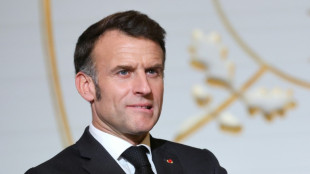
-
 Winter Olympics to open with star-studded ceremony
Winter Olympics to open with star-studded ceremony
-
Trump posts, then deletes, racist clip of Obamas as monkeys

-
 Danone expands recall of infant formula batches in Europe
Danone expands recall of infant formula batches in Europe
-
Trump deletes racist video post of Obamas as monkeys

-
 Colombia's Rodriguez signs with MLS side Minnesota United
Colombia's Rodriguez signs with MLS side Minnesota United
-
UK police probing Mandelson after Epstein revelations search properties

-
 Russian drone hits Ukrainian animal shelter
Russian drone hits Ukrainian animal shelter
-
US says new nuclear deal should include China, accuses Beijing of secret tests
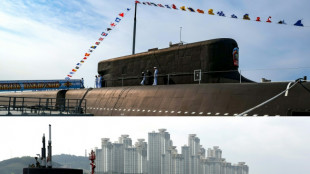

Artificial glaciers stave off drought in Kyrgyzstan
In the Tian-Shan mountains of Kyrgyzstan, villagers have made an artificial glacier to provide water for their drought-hit farms.
Standing on the ice hillock, farmer Erkinbek Kaldanov said he was optimistic about harnessing nature to counteract climate change.
"We won't have any more problems with water," said the farmer, who was worried for his sheep last year after some unusual temperature spikes.
"When the glacier melts, there will be enough water for the livestock and to water the land in Syn-Tash," the surrounding district, he said.
The glacier currently measures five metres (16 feet) high and about 20 metres long. At the height of winter it was 12 metres tall.
Local residents made it over a period of two weeks in autumn by re-directing water from the peaks of Tian-Shan, which tower more than 4,000 metres high in northern Kyrgyzstan.
Kaldanov and others are being forced to adapt since natural glaciers in Central Asia -- the main water source for the region -- are slowly disappearing due to global heating.
A 2023 study in the journal Science predicted that the acceleration in the melting of the glaciers would peak only between 2035 and 2055.
The lack of snow, also due to higher temperatures, does not allow them to regenerate.
- 'Less and less water' -
The extent of the problem can be seen in satellite images of Central Asia and in the regular warnings issued by the United Nations.
The problem has a knock-on effect on the lowlands of Central Asia, in more arid countries like Kazakhstan, Turkmenistan and Uzbekistan.
This in turn feeds into existing tensions between the different countries, which still share water resources under a complex and obsolete scheme inherited from the Soviet era.
"There is less and less water every year. The water tables are emptying out, the springs are drying up and we have problems with grazing," said Aidos Yzmanaliyev, a spokesman for the Syn-Tash farmers.
Finding solutions is urgent, particularly as farming represents around 10 percent of the fragile Kyrgyz economy and two thirds of its inhabitants live in rural areas.
In the north of Kyrgyzstan, a country accustomed to revolutions and uprisings, the lack of water has already stoked social tensions in previous periods of drought.
"Our main aim is to provide water for livestock since the majority of the 8,400 inhabitants of the Syn-Tash district are farmers," said district chief Maksat Dzholdoshev.
"We expect to create two or three additional artificial glaciers for farmland," he said.
- Simple concept -
The idea and its implementation are relatively simple. Each glacier costs around 550,000 som (around $6,200) to create.
"The water comes from a mountain source three kilometres away through underground piping. It gushes out and freezes, forming a glacier," said Yzmanaliyev.
"Apart from providing water when it melts, the glacier also helps lower the ambient temperature and create humidity.
"(That) helps the surrounding vegetation, which is grazed by cattle from spring to autumn," Yzmanaliyev said.
Artificial glaciers were first created in the Indian Himalayas in 2014 and have gone global -- cropping up in Chile and Switzerland.
In Kyrgyzstan, their introduction was spearheaded by Abdilmalik Egemberdiyev, head of the Kyrgyz association of pasture users.
Egemberdiyev pointed to an additional benefit.
The glaciers allow farmers to keep livestock on spring pastures for longer before sending them to summer pastures, thus slowing soil erosion.
"We now have 24 artificial glaciers around the country and more still to be created," he said.
N.Shalabi--SF-PST
